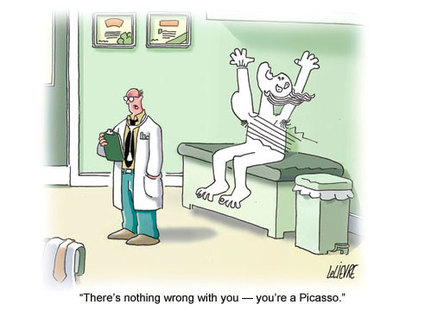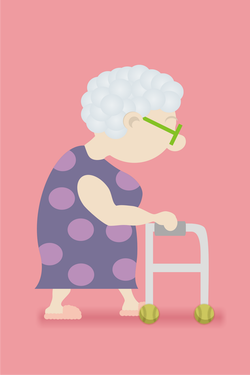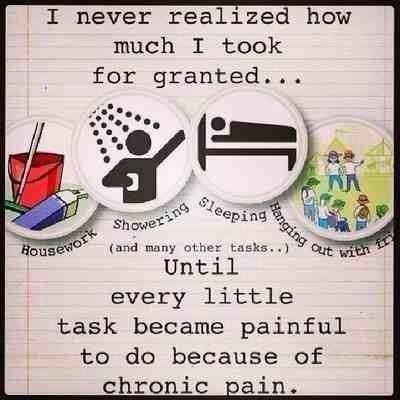 Holidays are tough for those of us with chronic illnesses and pain. Typically, hours of travel, cooking, eating, mingling, and pretending that you are fine are expected. Holidays are, in short, a recipe for a pain explosion. I can usually make it through Christmas day OK, but I am suffering (i.e. stumbling from my bed to my couch is the extent of my movement) for the week following. This year, I am going to try to follow my own advice for a low-pain holiday:
 I have been spending most of my time in center city Philadelphia lately. Not because I'm checking out the newest and hottest restaurants or gallery openings. Nope. What I have been doing is checking out some of the new hospital buildings and radiology equipment. Because I'm cool like that.
I managed to squeeze a ton of my recurring doctor appointments and tests in before the end of the year (while my deductible is met, of course). Which means I have the 3 weeks before Christmas packed full of charts, needles, monitors, and the like. I also have to get an arthrogram on my shoulder to find out what is wrong with it. With all the radiology tests I've had in the past few years, I believe this last one may put me over the edge. I won't need a Christmas tree this year--I will be glowing just like one. Merry Christmas to me! And Happy Holidays to you!  I've mentioned previously that I used to power walk through life. I considered myself a city walker, zipping from here to there, quietly muttering at tourists under my breath as I swiftly scurried around them. Now, my walk has no zip. I more so gimp around my neighborhood, and watch as people three times my age easily leave me in their dust. I don't mind the slowness of my gait so much as strangers' reactions to it. More than once, I've been told (usually by older men) to "get out of the way," "quit goofing around" and "stop playing around with your gadgets." I might add here, in none of these cases did I have a Bluetooth or a cellphone on me. Once, I ended up entering the same store as one of the men. I (nicely) told him that I am not "goofing around," but that I walk slowly due to pain and disability. He turned a shade a light tomato, but I'm not sure if he believed me. In all, these situations leave me angry and frustrated. I never know what to do. I feel like ignoring the offender leaves them off the hook too easily and allows them to think that their behavior is OK, but I don't want to have to confront and try to educate every rude person. What is your method of handing these types of situations? Leave your ideas and suggestions in the comment section!
 I spend hours on the phone each week fighting with people in order to coordinate and pay for my care. By "people" I mean the poor souls who have the answer the customer line at my insurance company, and my doctors' offices, and the place that takes my blood, and the hospital, and the testing facility...the list goes on. And by "fighting", I mean that I'm too nice, so I really spend hours on the phone each week politely explaining my case to try to make people care about my plight and then do their jobs.
Sometimes my problem is resolved with a phone call. However, usually it drags on and on--multiple long calls are needed, sometimes letters need to be drafted and sent, I even have made personal visits to billing offices to clear up issues (I'm sure they loved that). I noticed that the reason my problems take months to be solved is that they get passed from office to office. No one wants to deal with a problem, especially when I might just give up and pay them. This summer, I had a few x-rays done of my neck by order of one of my physicians. I got the x-rays at the same hospitals where that physician practices. Both the hospitals and the physician were covered by my insurance; however, my insurance refused payment because my "preventative schedule" did not cover the x-rays. I discovered (after calls to my insurance) that the x-rays should have been billed at diagnostic, not preventative. Somewhere along the way, the billing code was incorrectly changed. After approximately 3 dozen calls to the various parties, I still don't know how the mistake was made or who made it, but it was mysteriously fixed and my insurance paid. I think billing and insurance issues happens to those with chronic illnesses on a regular basis. Mainly because we require more care, but I also sometimes wonder if a handful of others try to take advantage of us. I believe there is always that chance when an ill or disadvantaged individual is involved. My advice to you is to always double check you EOBs and bills: do they match? Also, actually read your EOBs and check the codes at the bottom. Is your insurance covering all that it should be covering? If there is an odd code, don't hesitate to call your insurance to ask about it. Also, find out if your doctor can re-write a prescription/order so that it can be covered. If you are having a problem with your doctor's office, speak to the billing department, and don't be afraid to ask for the office manager.  I bet you are sick and tired of hearing "on a scale of 1-10, how bad does ____ hurt?" ("Well, on my personal scale, or yours? 'Cause a 3 for me is like a 7 for normal people. And do you want a number just for ___ or for overall? What about other body parts that hurt now, too? And for good days or bad days?") Or trying to draw where things hurt on a body outline? ("May I just scribble over the whole freakin' thing?")
I found this fantastic post awhile ago by one of my favorite bloggers, Allie Brosh. It made me laugh so hard, I popped a few ribs in the process. So brace yourselves (and your rib cage) for the new pain scale.  Are you ever confused why your scans (x-ray, MRI, CT) are read as normal by the radiologist, even though they clearly are not? Maybe you can see your chiari, or CCI, or tethered cord, but somehow the radiologist missed what was right in front of him or her. This article could explain that phenomena.
|




 RSS Feed
RSS Feed